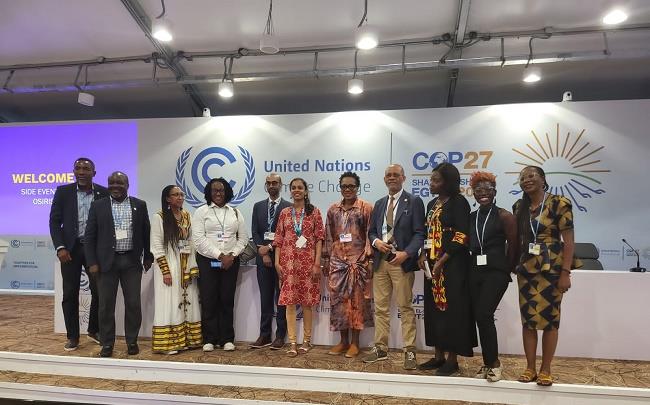The Lagos State Government has craved the adoption of international best practices to combat the negative impacts of climate change on the healthcare sector.

The state believes that, to tackle the dangers of climate change and deliver effective healthcare services to citizens, the solutions must be both tangible and intangible.
Speaking at the second International Conference on Public Health in Africa during the 27th session of the Conference of the Parties (COP27) to the United Nations Framework Convention on Climate Change (UNFCCC) held in Sharm El-Sheikh, Egypt, the Commissioner for Health, Lagos State, Professor Akin Abayomi, disclosed that the state has designed a roadmap that will superintend over climate change associated activities over the next two decades.
Given a breakdown of the total figure of people living in the state, which he estimated at 30 million, the commissioner said the climate plan will focus on how to build a very strong system to curb the high-density, and low-line coastal areas that are extremely vulnerable to climate change and other biological antecedents irrespective of what they might be.
Professor Abayomi hinted that the reason why the government was paying attention to these threats is because of the revelation of its assessment report that showed that the cost of inaction was more expensive than the price of taking climate action.
“So, a stitch in time saves nine,” he said. Therefore, the aforementioned plan is essentially designed to climate-proof the largest mega city in Africa and ensures basic healthcare deliveries to the people.
He added that the roadmap would concentrate on how to build a competent workforce that will handle both climate change-related activities, as well as other biological shocks in the state.
The state’s health chief revealed that the plan also underscored the need to disseminate clear information in multiple languages to all units of society. Other includes the need to control and regulate medical products, and clinical services.
While listing the tangible aspect of the roadmap to include infrastructure, human resources for health equipment, and the consumables that are used for the delivery of medical services, the commissioner reinforced the need to operate within the international benchmark of health services.
“And, I think this is the role of government to ensure that their constituencies are receiving medical interventions that are evidence-based and conform to international best practices,” he said.
On the other side, which speaks to the intangible, he said it includes the quality of service, intervention, and things like hospitality and air ticket.
He lamented that it is very easy for any kind of contagious to spread across the state because of its high density, therefore the roadmap has taken into consideration these medical needs and made provision for adaptation.
Regarding finance, he said the state is looking at multiple sources with the government budget as the main one. He clarified that the state was also conforming to the Abuja declaration that mandates that every state in the country must spend 15 percent of its total budget on healthcare services.
He said there is a plan to digitalise the sector, improve the welfare of health workers, and introduce a social insurance scheme as part of efforts to strengthen health services in the state.
“Essentially, we are using this high-level principle in Lagos to strengthen our healthcare systems and make sure that we can deal with all shocks, climatic, biological, and human resources that our government may experience in the governance structure,” he submitted.
By Etta Michael Bisong, Abuja
